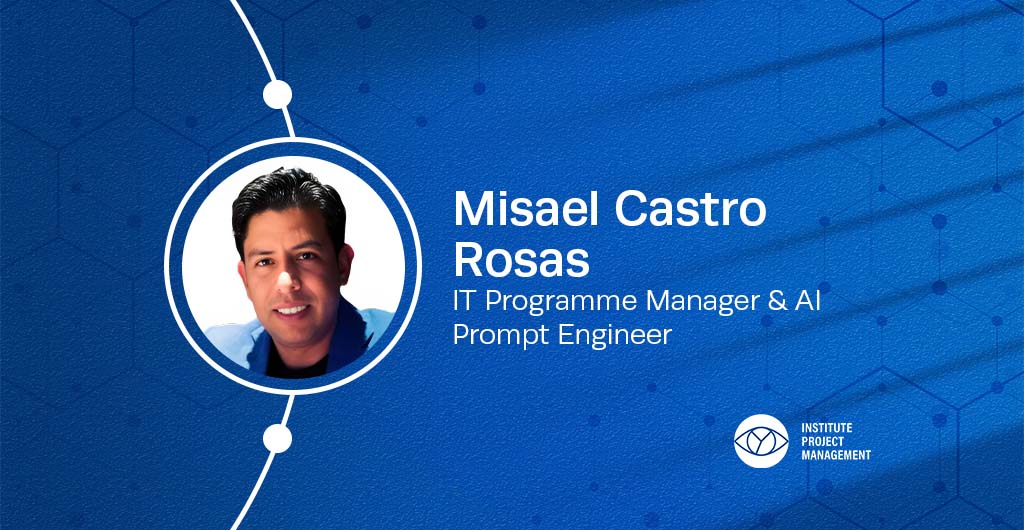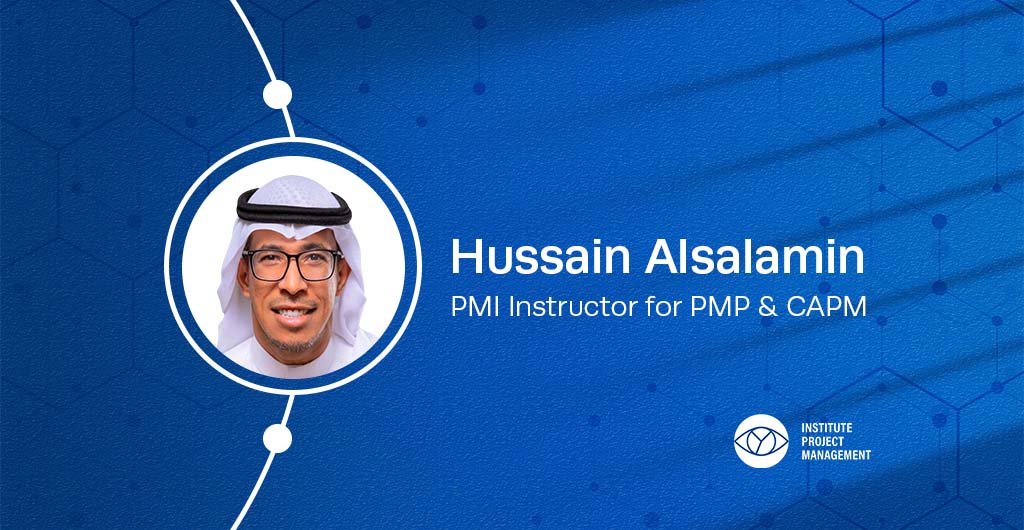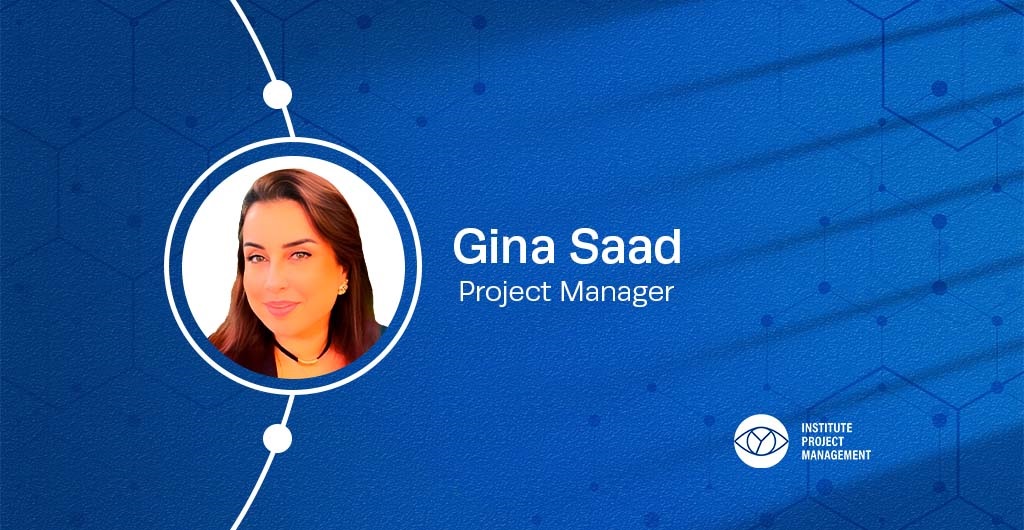Need advice? Call Now, Schedule a Meeting or Contact Us


Speak to an advisor
PM World Today is the world's leading online project management (PM) eJournal, containing articles and stories related to project management.

PM World Today is the world's leading online global project management (PM) eJournal, containing articles, papers and stories related to professional project management.
Under Managing Editor David Pells, PM World Today has grown into a robust online project management publication with a global following monthly to thousands of Project Managers and PM professionals around the world of project management.
David is an internationally recognized leader in professional project management, with over thirty years of experience in project management. He has published widely, speaks at PM events worldwide, and advises global organizations and programs.
In the February 2012 edition of PM World Today, the featured interview was David Pells with Ed Naughton, Director General Institute of Project Management.
PM World Today (PMWT): In a nutshell, what’s your background?
Ed Naughton: I graduated as a civil engineer from UCD and soon after emigrated to Vancouver, Canada, with five others from my class. I worked on many large scale capital projects in Canada, Iran and Nigeria before returning to Ireland as a member of the project team overseeing the construction of a £649m Alumina Plant in the southwest of Ireland.
PMWT : How did you go from civil engineering to project management?
Naughton: After that project, my company was engaged by Dublin Gas Company to manage the conversion of Dublin city from town’s gas to natural gas. This involved the conversion of all appliances for about 140000 customers. The executive management of Dublin Gas was impressed with the effective management of what was a challenging project. However, when the project was completed, they needed to downsize by almost 50%, and they wanted to bring a project management discipline to that undertaking. I spent the next 20 years applying and refining what I learned in the construction sector to managing rationalization projects in the business environment.
PMWT : Why did you decide to set up your own education business?
Naughton: In Ireland in the late 80s, project management was seen primarily as preserving the construction and IT sectors. I wanted to promote the philosophy that project management was a generic management discipline applied to any sector. This is how it has grown and continues to expand robustly as more and more profit and not for profit sectors embrace it.
PMWT : What would you do differently if you were doing it again?
Naughton: Very little, to be honest.
PMWT : What’s the most difficult part of your job?
Naughton: I would differentiate between the most difficult and that which I like doing least. Writing proposals and responding to tenders that I truly believe we have little chance of winning, I find quite tedious. I am not a natural wordsmith. I lean more to the numerate, wishing to express myself in as few words as possible.
PMWT : What is project management, in your opinion?
Naughton: Project management is the value driver that enables an organization to get the most out of its performance. It is the application of knowledge, skills and techniques to execute projects effectively and efficiently. It’s a strategic competency for organizations, enabling them to tie project results to business goals.
PMWT : What kind of people (backgrounds/ages/gender) do your courses?
Naughton: The typical people attending our programmes are middle to senior management in the 28 t0 49 age bracket. Our gender split would be of the order of 55% male to 45% female. We would have representation from the private, public, semi-state and not-for-profit sectors. Participants would come from a diversity of business functions, including IT, new product development, engineering, human resources, marketing, engineering etc.
PMWT : Is this a full time course commitment or more of a professional course which you do while working?
Naughton: Our courses are professional development programmes that enable people to work while at the same time gaining an internationally recognised professional body accreditation. With the downturn in the economy over the last four years, many employers have had a reticence to send individuals on day release programmes. Our evening diploma programmes allow the individual to learn and develop without impinging on the employer’s need to maximise output and performance.
PMWT : How many students do you have?
Naughton: Our student numbers obviously vary from year to year, but we would typically cater for anywhere between six to seven hundred in an academic year across all our programmes.
PMWT : Of what benefit is a qualification in project management?
Naughton: Individuals and organizations, when investing in education and training, want to be sure that the resulting credentials acquired are transportable and globally recognised. The benefits of acquiring our IPMA (International Project Management Association) credential include peer and employer recognition and reward, your expertise being recognised in a professional community of practice, offering client assurance and being part of a public registry.
PMWT : What makes a good project manager?
Naughton: A good project manager will be technically competent, exhibit excellent behavioural skills (leading, negotiating, communicating, decision- making etc.) and will also see the “big picture” - understand and appreciate the contextual setting of the project within the overall organization’s hierarchy of needs. The difference between good and great, in my opinion, is when the project manager knows when to abort the process to achieve the result without endangering the organization.
PMWT : How difficult is it to project manage if you haven’t been trained in the discipline?
Naughton: Some people might answer that by asking, “would you engage a lawyer to defend you if he had never been trained”? Projects are about utilising resources to achieve a stated objective. These resources cost money, so it is imperative to expand them as effectively as possible. Formal project management training provides the roadmap to do this. For example, an untrained cyclist may meander back and forth and eventually get from one end of the street to the other – a trained one will take the direct route.
PMWT: You’ve been director-general of the Institute of Project Management Ireland for the past 22 years; what changes have you seen in the field in that time?
Naughton: The recognition and use of modern project management have spread globally, promoting more accountability for spending by corporates and governments in both mature and developing economies. The field of “Project management” has expanded and re-branded itself to include program management and project portfolio management. This arena has also been presented as strategic project management by some and enterprise project management by others.
PMWT : How have you upskilled over that time?
Naughton: I represent the Institute at a minimum of three international congresses each year. At these congresses, I network, attend workshops and paper presentations. I am an active contributor to publications, so I extensively research the domain of current developments within the profession. My main focus in this area is to bring the latest and most up to date developments and trends into our course curricula.
PMWT : What is the relationship of your Institute to IPMA?
Naughton: As you are aware, the IPMA is a federation of some 53 national associations. Our Institute is the national association for Ireland and has been at the forefront of driving the benefits of the IPMA 4 level certification system in this country. We currently have 2500 certified IPMA professionals in Ireland, which on a per capita of the population (4m) represents a solid international performance. We play an active role in the running of IPMA by hosting such events as Council of Delegates meetings and international standards development workshops and active participation at council and subsidiary board committees.
PMWT: You served on the IPMA Executive Board a few years ago. How was that experience, and how did it change your understanding of the broader world of professional project management?
Naughton: I joined the IPMA board as VP Marketing in 2006. I was fortunate to be part of a very talented and experienced group that included former presidents Miles Sheperd (UK) and Daniel Schaffele (Switzerland); future presidents Adesh Jain (India), Brigitte Schaden(Austria), Veiko Valila (Finland), and long-serving professionals Otto Zieglmeier (Germany) and Professor Fupei (China). Working with such a board and reporting semi-annually to a council of delegates from 50 countries gives one a flavour of the intricacies and nuances of working in an environment such as the United Nations or the European Union.
I found my tenure extremely demanding as I had set out a very ambitious plan for my term, and I was determined to deliver it. One should never expect too many plaudits from participation in a voluntary capacity - it is always easier for members who are not on boards to criticize than to praise.
Also, one has to be very careful about taking one’s “eye off the ball” on domestic bread and butter issues for the sake of the international organization. I thoroughly enjoyed my term, expended a huge amount of voluntary hours. And went to places and met people who would not have happened otherwise. I believe that I made a valuable contribution to IPMA while simultaneously learning an awful lot about people, culture and project management. I decided not to seek re-election as I found the commitment too demanding and time-consuming if one wants to give the very best of one’s efforts.
PMWT : What’s the best piece of business advice you’ve ever been given?
Naughton: Look after the downside – the upside will look after itself.
PMWT : What’s the best piece of advice you wish you’d been given?
Naughton: Having confidence in oneself is very important – being overconfident can easily result in a rude fall. A little bit of humility can go a long way!
PMWT : How has the recession affected your business?
Naughton: We have changed our price pointing and our product range to reflect the inevitable shifts that have taken place. However, we have invested in building even more quality into our offerings as it is a unique selling point. We have always operated a scalable business model that allows us to expand or contract while keeping fixed overheads to a minimum. We learned a lot from working on company rationalizations in the 80s and 90s.
PMWT : What does Ireland need to do to pull itself out of this recession?
Naughton: Joseph Juran, the “Quality Guru”, stated that “all improvements take place project by project and in no other way.” In many organisations, nobody generally knows better than the employees which projects need to be done to improve its performance. The same is true for our public sector. We have a large annual budget deficit in the public sector, which is being tackled using blunt instruments such as tax increases and spending cuts. The “low hanging” fruit” has been eaten.
However, I believe that many process improvement and change management projects need to be expedited rather than long-fingered. The reforms need bold, speedy, political decisions and implementing these projects would greatly enhance our competitiveness.
One of the benefits of a crisis is that many of the changes occurring now would not occur otherwise. In Ireland, sometimes, we tend to be good at beating ourselves up. Compared to many of our European neighbours suffering from similar economic woes, we have been exemplary patients taking our nasty economic medicine.














